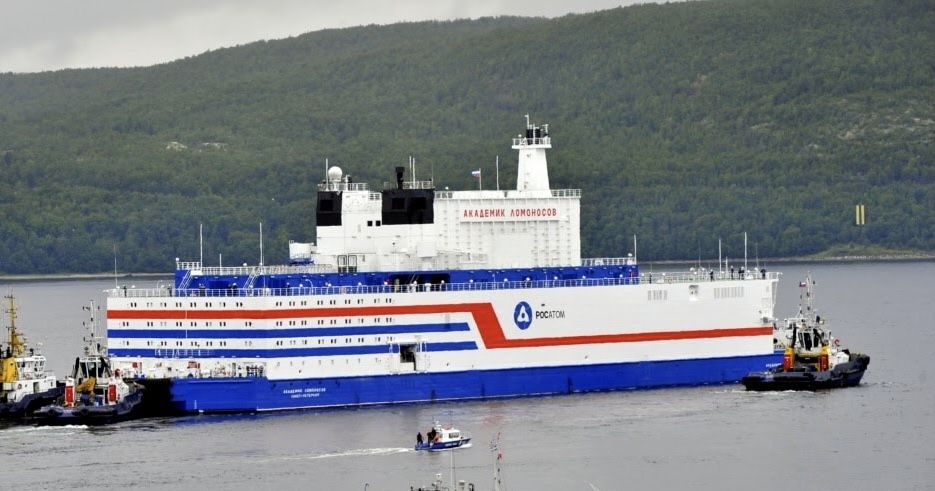Russia has announced its readiness to engage African governments interested in adopting floating nuclear power plants to address energy supply challenges and ensure sustainable development. Russia, the first country to design and operate such plants, launched the Akademik Lomonosov in August 2020.
The Akademik Lomonosov serves Russia’s Chukotka Region, the northernmost and coldest part of the country. It is equipped with two KLT-40S reactor systems, each with a 35MWe capacity, similar to those used on icebreakers. Designed by Russian nuclear scientists and naval architects, the vessel is 144 meters long and 30 meters wide, with a displacement of 21,000 tonnes.
Michael Creg Afful, Editor of Energy News Africa Limited, toured the facility with reporters from South Africa, Uzbekistan, Kyrgyzstan, Indonesia, and India. They were welcomed by Andrey Valeryevich Zaslavsky, Chief Engineer of the Floating Nuclear Power Plant (FNPP). After a detailed presentation, Viktor Nikolayevich Chyorny, Deputy Chief Engineer for Engineering Support and Quality, led the reporters on a tour of the facility.
Viktor Nikolayevich stated that the facility had been operating for almost four years without incidents. “Floating nuclear power technology is viable and feasible,” he said, adding that Russia plans to develop more floating nuclear power plants with higher generation capacities than the Akademik Lomonosov.
When asked about the plant’s ability to operate under different weather conditions, Viktor Nikolayevich confirmed its versatility. “The FNPP can operate at temperatures ranging from minus 50 to plus 50 degrees Celsius,” he explained. The plant is fully automated and designed with environmental safety and crew security in mind.
Viktor Nikolayevich highlighted the advantages of floating nuclear power plants over land-based ones. “Floating nuclear power plants are cheaper to construct and can be moved to any location when needed,” he noted. Additionally, these plants have zero CO2 emissions and predictable operating costs, leading to low fuel price volatility.
Construction of a floating nuclear power plant takes about four years. Viktor Nikolayevich emphasized Russia’s willingness to engage any African nation interested in floating nuclear power to solve their energy needs.
The use of floating nuclear power plants could revolutionize energy supply in Africa, addressing both capacity and sustainability issues. By providing a stable and clean energy source, these plants could help drive economic growth and improve living standards across the continent.
Russia’s offer comes at a crucial time as many African nations face significant energy challenges. The adoption of floating nuclear power technology could provide a reliable solution, enhancing energy security and supporting sustainable development goals.
African governments now have the opportunity to explore this innovative technology, potentially transforming their energy landscapes. With the support of Russian expertise, floating nuclear power plants could become a key component in Africa’s energy future.
Source: Energynewsafrica.com



